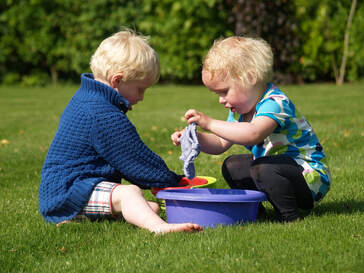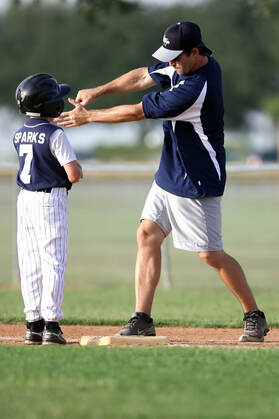 I’d like to welcome guest blogger Dylan Foster to rindabeach.com. He has some great ideas to help your children learn, beyond the classroom. Learning is everywhere, if you know how to look for it. Get a head start with Dylan’s ideas and the links that go with them.  School is important, of course, but it’s not the only way for a child to learn. Whether you’re trying to help your child catch up in a subject where they are faltering or enriching their background for other reasons, there are plenty of fun ways to teach all kinds of things. Inviting neighborhood kids or letting them bring friends can set a fun tone, too. Here are some additional tips from Dylan Foster to help your children reach their full potential.  Idea #1: Go Outdoors – Many learning activities can be done outdoors and combined with a fun game in the backyard or a nature walk in the park. If your child enjoys being active more than anything, the outdoor lessons will be particularly appreciated. It’s a good idea to do science experiments that are likely to make messes, such as making an erupting volcano, or studying soils, outside. The backyard is a great place to learn about rocks, trees, insects, constellations, weather, solar power, and so many other things. Many science lessons can be combined with art, too, such as learning about leaves and plants while making leaf rubbings with paint or pastels.  Idea #2: Incorporate Your Child’s Interests – Think about subjects your child is already fascinated by, such as dinosaurs, dance, astronomy, or sculpture. Find ways to build lessons related to their interests, such as getting library books about the constellations to read aloud, or for small children, connecting the numbered dots to create pictures of sharks. Give your child opportunities to try new things and develop new hobbies and interests without a commitment upfront. Take kids on field trips to expose them to new places, subjects, and ideas. Visiting historic sites, art museums, or a candy factory can open up new worlds for young minds. A child needs to become aware of something before they can develop an interest in it, so offer to include them in your activities, whether as observers, helpers, or participants.  Idea #3: Teach Leadership – Leadership is something that may not be on the curriculum at school, although children are always learning from observing the people around them. Whether an individual makes career choices that involve leadership or not, the skills involved can benefit people from all walks of life. Remember that your behavior probably teaches more lasting lessons than any structured learning plan, so think about modeling good communication, a positive attitude, problem-solving, and goal setting. Other ways you can teach leadership skills include games that require teamwork, negotiation, communication, and perseverance. The importance of integrity cannot be overstated. While you can talk about this endlessly, your child will probably learn more from being included in decision-making processes, seeing you tell the truth even when it’s awkward or difficult, and observing you treat others fairly.  Something else to consider: if you find that you have a special knack for teaching, or you’d like to gain additional knowledge to pass on to your children, you could always go back to school. These days, you can get a bachelor of education through online study, which allows you a great deal of flexibility and can open a lot of doors, since teachers are currently in high demand.  Children are learning much of the time that they are awake, whether actively or passively. They may not realize this, but it’s important that you do, so you can be sure to offer them opportunities to learn things that will enhance their lives. If they are absorbing information from watching TV or videos, take the time to make sure some of these “lessons” are constructive. You can create games, experiments, contests, and family activities that teach facts and concepts as well as behaviors. Many of the tasks of daily life can be made into field trips, such as visiting a professional bakery, a plant nursery, or a shoe repair shop. Vacation trips can include museums, art galleries, state and national parks, as well as historic sites. With a little bit of planning, you can offer them opportunities to expand their minds in all directions. Rinda Beach is an author, teacher, and speaker who’s here to help you live your dreams. Don’t hesitate to reach out!
0 Comments
Your comment will be posted after it is approved.
Leave a Reply. |
AuthorWhen I write, I can only have one voice in my head, mine. A little noise is fine. But too much, or worse yet, WORDS, and I must change rooms or pull out headphones. Then I can write on! Categories
All
|

 RSS Feed
RSS Feed